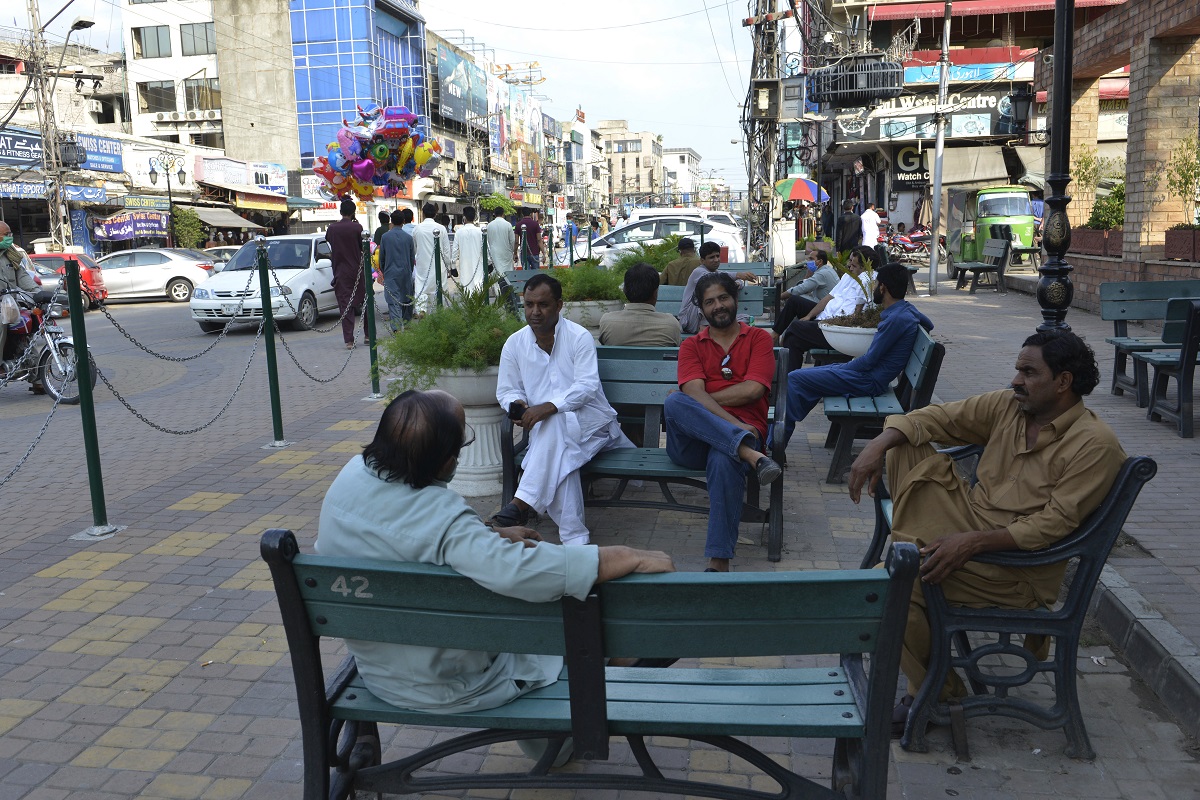Trade with Pakistan can help achieve 2047 goal
Prime Minister Narendra Modi wants India to become an advanced nation by 2047, exactly a hundred years after Independence.
The authorities have conducted 638,323 tests, including a record 22,812 tests in the last 24 hours, the ministry further added.

People sit at Pindi Food Street in Rawalpindi on June 2, 2020. - (Photo: AFP)
Pakistan’s coronavirus cases rose to 89,249 on Friday after a record 4,896 new infections were detected in the country, while the death toll due to COVID-19 has reached 1,838, according to the health ministry.
The Ministry of National Health Service said that 68 patients died in the last 24 hours, taking the death toll to 1,838, whereas another 31,198 people have recovered.
Advertisement
It was the third consecutive day when a record number of cases were reported in Pakistan after the Eid holidays and easing of lockdown restrictions at the end of May.
Advertisement
Sindh province reported 33,536 infections, Punjab 33,144, Khyber-Pakhtunkhwa 11,890, Balochistan 5,582, Islamabad 3,946, Gilgit-Baltistan 852 and Pakistan-occupied Kashmir 299.
The authorities have conducted 638,323 tests, including a record 22,812 tests in the last 24 hours, the ministry further added.
Earlier this week, Prime Minister Imran Khan said that economic losses to justify his government’s decision to lift a coronavirus lockdown despite rising infections and deaths and urged people to “live with the virus.”
Last week, Information Minister Shibli Faraz said that although there were reports from some big metropolitan cities about pressure on certain hospitals due to an increase in the number of COVID-19 patients, the overall situation and conditions in hospitals were “satisfactory”.
Chairman Senate Sadiq Sanjrani and Speaker National Assembly Asad Qaiser at a meeting at the parliament house in Islamabad reviewed arrangements made for the two sessions.
Earlier, the Opposition rejected the idea of virtual meetings and insisted that the sessions be held in person, noting that it was an important session of parliament because the budget is expected to be presented in the National Assembly in the next week.
On May 16, Domestic flight operations resumed in Pakistan after a nearly two-month-long suspension.
Meanwhile, the novel coronavirus which first originated from China’s Wuhan city in December last year has claimed 391,249 lives and has infected over 6 million people globally, according to Johns Hopkins University data.
Advertisement